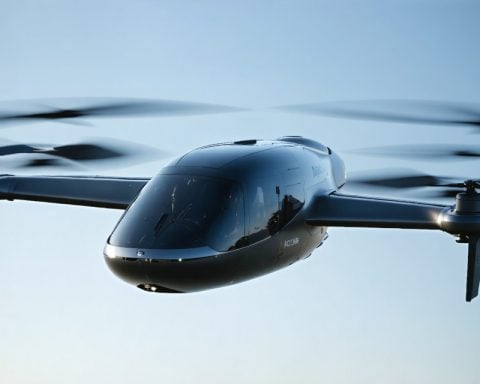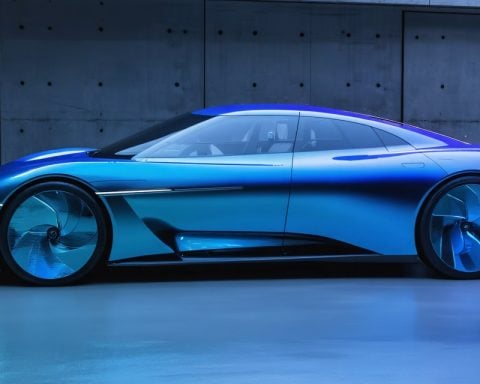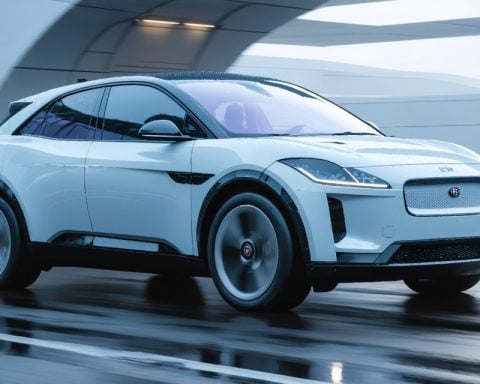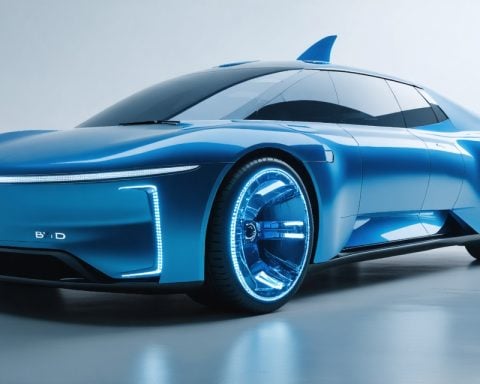- Canoo introduces a subscription-based model for accessing electric vehicles, eliminating the need for ownership, insurance, and maintenance.
- The innovative skateboard architecture places the battery and essential components at the car’s base, maximizing space for passengers and cargo.
- Equipped with advanced AI and connectivity features, Canoo vehicles offer a high-tech, seamless urban lifestyle experience.
- Canoo champions the Mobility as a Service (MaaS) concept, prioritizing flexibility, sustainability, and efficiency over traditional car ownership.
- Positioned as a leader in urban mobility, Canoo aims to address pollution and space challenges, promoting a cleaner, more adaptable future.
As cities become increasingly congested, a transformative new player is charging up the electric vehicle (EV) arena. Meet Canoo, a Los Angeles-based startup challenging traditional car ownership with its ambitious subscription model. Imagine accessing a sleek, state-of-the-art vehicle precisely when you need it—no buying, no insurance, no maintenance worries. This innovative approach is set to redefine urban mobility, offering a hassle-free and sustainable transportation solution.
Central to this disruption is Canoo’s ingenious skateboard architecture. This design marvel essentially relocates the battery and vital components to the bottom of the car, dramatically freeing up space for passengers and cargo. Imagine modular vehicles designed for adaptability and comfort, effortlessly rolling through cramped city streets.
But there’s more beneath the sleek surface. Canoo vehicles are equipped with advanced AI and connectivity features, transforming them into high-tech mobile sanctuaries. Picture a vehicle that not only transports you but also connects you to a smarter, seamless urban lifestyle.
Canoo’s vision extends beyond just design brilliance. It speaks to a shift in mobility culture—less about ownership, more about Mobility as a Service (MaaS). This forward-thinking approach aligns with the modern urbanite’s desire for flexibility, sustainability, and efficiency.
As urban challenges like pollution and space become ever more pertinent, Canoo positions itself not just as another EV maker, but as a pioneer in carving out a cleaner, more adaptable future for city commuters. In a world where urban mobility norms are rapidly evolving, Canoo stands out as a beacon of ecological innovation and practical convenience.
Explore how Canoo’s strategic innovations promise a smarter, greener city future.
This Startup is Revolutionizing Urban Mobility: Learn How Canoo is Leading the Charge
What Makes Canoo’s Subscription Model Stand Out?
Pros and Cons: Canoo’s subscription model offers numerous advantages, such as avoiding the hefty upfront costs of purchasing a vehicle and eliminating the need for insurance and maintenance. Subscribers enjoy the flexibility of changing vehicles as needed, aligning perfectly with urban lifestyles. However, potential downsides may include the ongoing subscription fee being higher over time compared to buying a vehicle outright, and limitations on vehicle availability.
Market Analysis: With the global trend towards car subscription services expected to grow significantly by 2025, Canoo is well-positioned to capitalize on this market shift. More consumers are seeking convenient and cost-effective mobility solutions, propelling interest in subscription-based services.
Sustainability: Canoo’s model promotes sustainability by reducing the number of privately owned vehicles, leading to fewer emissions and less traffic congestion. This approach echoes global sustainability goals, appealing to eco-conscious consumers.
How Does Canoo’s Skateboard Architecture Benefit Urban Mobility?
Specifications and Features: The skateboard architecture is a revolutionary platform that places the battery and critical vehicle systems at the base, maximizing internal space. This results in vehicles that offer more passenger and cargo room, an essential feature for cities with limited space.
Innovations: This architecture supports modular vehicle designs, allowing for customizable interiors that adapt to various uses, from passenger transport to cargo delivery, making it versatile for numerous urban scenarios.
Predictions: Experts foresee that skateboard architecture could become a standard in the EV industry, with Canoo setting the stage for other manufacturers to innovate similarly. Its potential impact on the market is significant, promising a new era of vehicle design that prioritizes space and efficiency.
How Do Canoo’s AI and Connectivity Features Enhance the Urban Driving Experience?
AI Features and Use Cases: Canoo vehicles are equipped with advanced AI that enhances navigation, safety, and user experience. Features include real-time traffic updates, adaptive route planning, and personalized infotainment systems that cater to user preferences.
Security Aspects: Canoo’s connectivity features include robust cybersecurity measures to protect user data and ensure the safety of digital interactions within the vehicle. This focus on security is crucial as connected vehicles become more prevalent.
Trends and Insights: The integration of AI and connectivity positions Canoo as a frontrunner in the smart vehicle market. As urban environments become increasingly integrated with smart technology, Canoo vehicles are designed to offer seamless interaction with city infrastructure, enhancing overall urban mobility.
For more on Canoo’s innovative approach to urban mobility, visit Canoo.

















